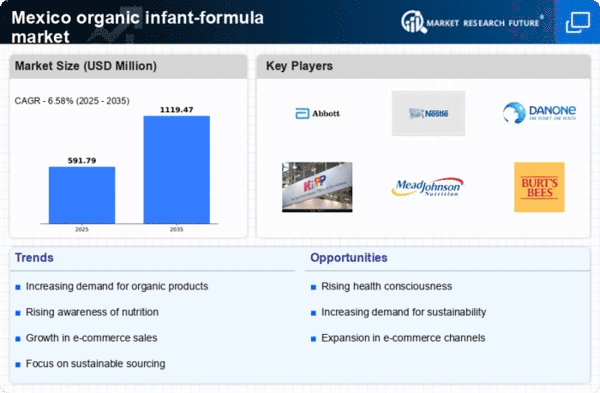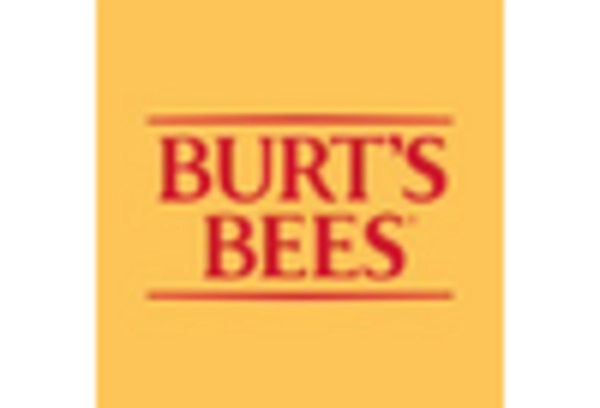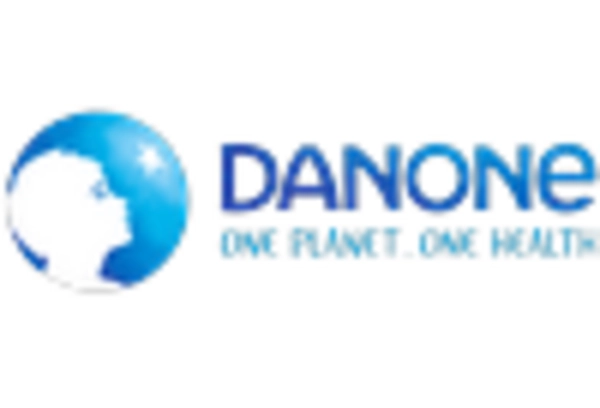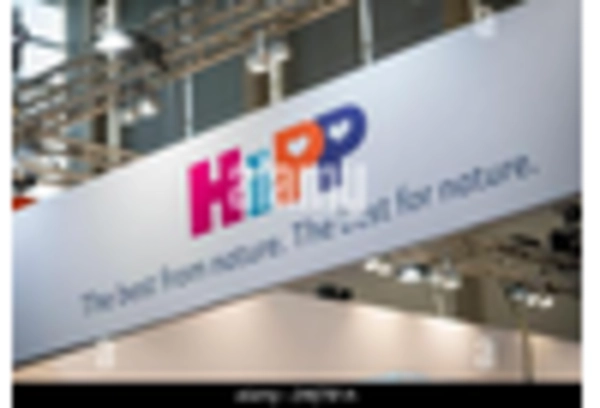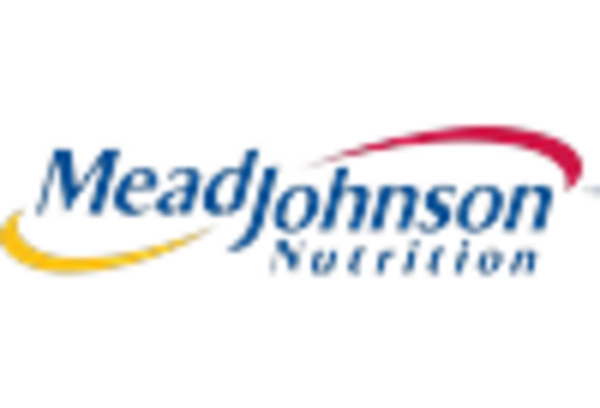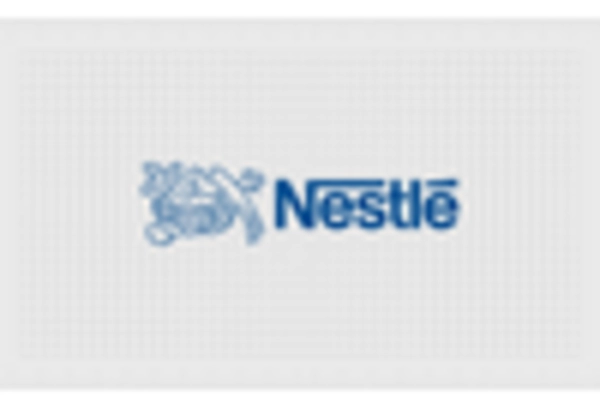Sustainability Trends
Sustainability trends are increasingly influencing consumer behavior in Mexico, particularly in the organic infant-formula market. Parents are becoming more aware of the environmental impact of their purchasing choices, leading to a preference for products that are sustainably sourced and produced. This shift is evidenced by a reported 45% of consumers expressing a desire for eco-friendly packaging and organic certifications. The organic infant-formula market is thus benefiting from this growing demand for sustainable practices, as brands that emphasize their commitment to environmental stewardship are likely to attract more customers. As sustainability becomes a core value for many families, the market may see further innovations in product offerings and packaging solutions that align with these principles.
Rising Disposable Income
Rising disposable income levels in Mexico are contributing to the growth of the organic infant-formula market. As families experience improved economic conditions, they are more inclined to invest in premium products for their children. Recent statistics indicate that disposable income has increased by approximately 10% over the past year, allowing parents to allocate more funds towards organic options. This trend suggests that as economic stability continues, the organic infant-formula market may witness sustained growth, driven by parents' willingness to spend on high-quality, organic nutrition for their infants. The correlation between economic prosperity and consumer spending on organic products is likely to remain a key factor influencing market dynamics.
Health Consciousness Among Parents
The increasing health consciousness among parents in Mexico appears to be a pivotal driver for the organic infant-formula market. As more parents prioritize nutrition and health for their infants, the demand for organic products has surged. Recent data indicates that approximately 60% of parents are willing to pay a premium for organic infant formulas, reflecting a shift towards healthier dietary choices. This trend is likely influenced by growing awareness of the potential health risks associated with synthetic additives and preservatives. Consequently, the organic infant-formula market is experiencing robust growth, as parents seek products that align with their health values and beliefs. This heightened focus on health and wellness is expected to continue shaping purchasing decisions, thereby propelling the market forward.
Increased Availability of Organic Products
The increased availability of organic products in retail outlets across Mexico is a crucial driver for the organic infant-formula market. As more retailers expand their organic product lines, parents have greater access to a variety of organic infant formulas. Recent reports indicate that the number of stores offering organic products has risen by 30% in the last two years, making it easier for consumers to find and purchase these items. This enhanced accessibility is likely to encourage more parents to choose organic options, thereby boosting sales in the organic infant-formula market. The trend towards wider distribution channels is expected to continue, further supporting the growth of organic infant formulas in the coming years.
Influence of Social Media and Online Communities
The influence of social media and online communities is a significant driver for the organic infant-formula market in Mexico. Parents increasingly turn to social media platforms for recommendations and information regarding infant nutrition. This trend has led to a rise in online discussions about the benefits of organic formulas, with many influencers advocating for their use. Data suggests that around 70% of parents rely on social media for parenting advice, which has a direct impact on their purchasing decisions. As a result, brands that effectively engage with these online communities and leverage social media marketing strategies are likely to see increased visibility and sales in the organic infant-formula market. This dynamic interaction between consumers and brands is reshaping the landscape of infant nutrition.


